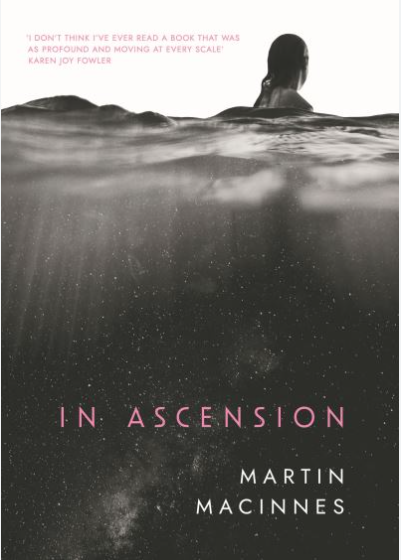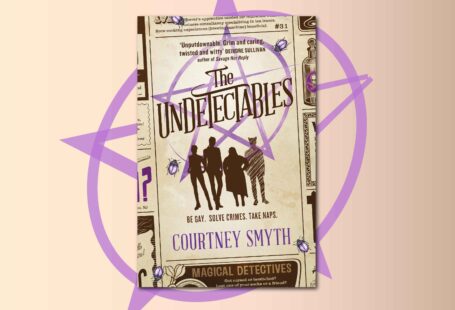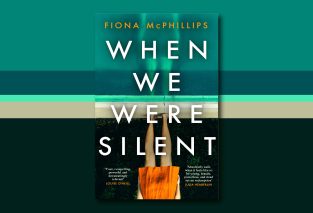I can’t say for certain when I began writing In Ascension. It was in 2020, when I found myself locked-down and isolated in a remote coastal village. It was in 2018, when I wrote a story about a spacecraft. Or it was in 2008, when I took a boat across the equator to one of the world’s most remote and unusual islands. The answer, in a sense, is obvious: I have always been writing In Ascension. It’s the culmination of my earlier books, and the most direct way I have found of showing how the world appears to me.

The book really came together when I found Leigh, the protagonist. Leigh’s a marine biologist who grew up in Rotterdam, where her only respite from her unhappy home life and volatile father was the time she spent underwater. She travels the globe, and when a deep-sea trench is discovered in the Atlantic she joins the exploration team, hoping to find evidence of the earth’s first life forms. But what she instead finds calls into question everything we know about our origins.
To say much more here would be to spoil things. Suffice to say, Leigh faces an impossible choice: to remain and care for her ailing family, or to embark on a journey across the breadth of the cosmos.
In Ascension – like all my writing – is about the way we relate to the natural world. Climate disaster is at root enabled by a failure of imagination, a refusal to accept that our species is related to everything around us (animal, plant, mineral). We do not accept that we are made from the earth. (I say ‘we’ to mean almost every person I have ever met; I mean my upbringing and my education and everything I continue to be told by the dominant forms of art, politics, literature, etc.) At one point in the novel, Leigh notes that our cells carry their original ocean environment inside them; in this sense, she says, we hold within us the very beginning of life.
There is a common assumption that humans are ‘on’ the earth but not ‘of’ it. That we arrived on it mysteriously, that the richness of our inner lives is proof of our exception in the kingdom of life, and that however bad things get on our planet, we, the ‘main characters,’ will be OK. This assumption has been disastrous. I think that if enough people genuinely, viscerally, felt their kin with other life, then we would do more to mitigate the disaster. In Ascension isn’t a permission for inaction, but an attempt to show humanity differently and more vulnerably, a philosophy that might drive direct action. It is also, I hope, an awe-inspiring story about an extraordinary journey, and a compassionate study of family, inheritance, and the difficult decisions we all have to make.
In Ascension by Martin MacInnes will be available in our stores and online.






Recent Comments